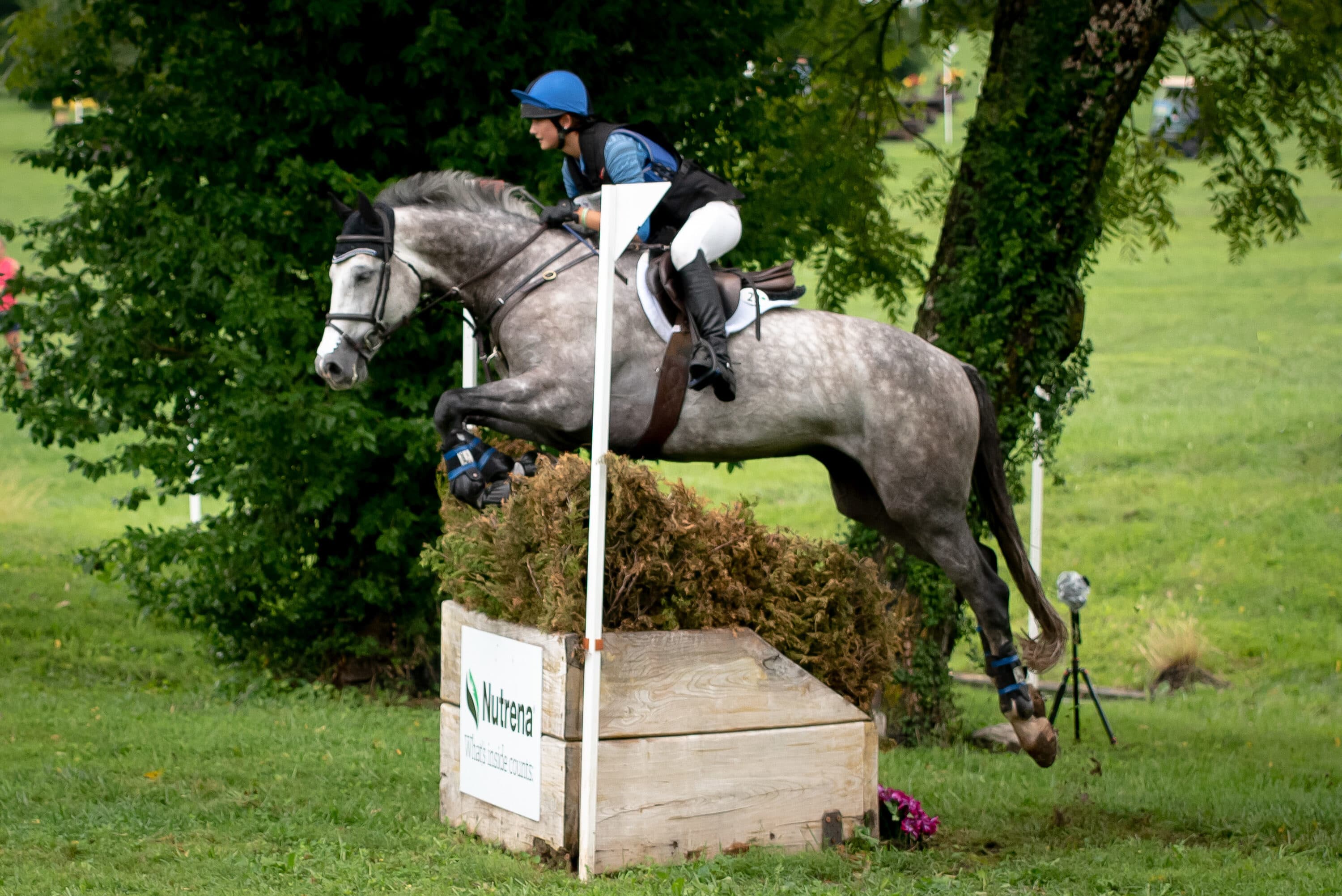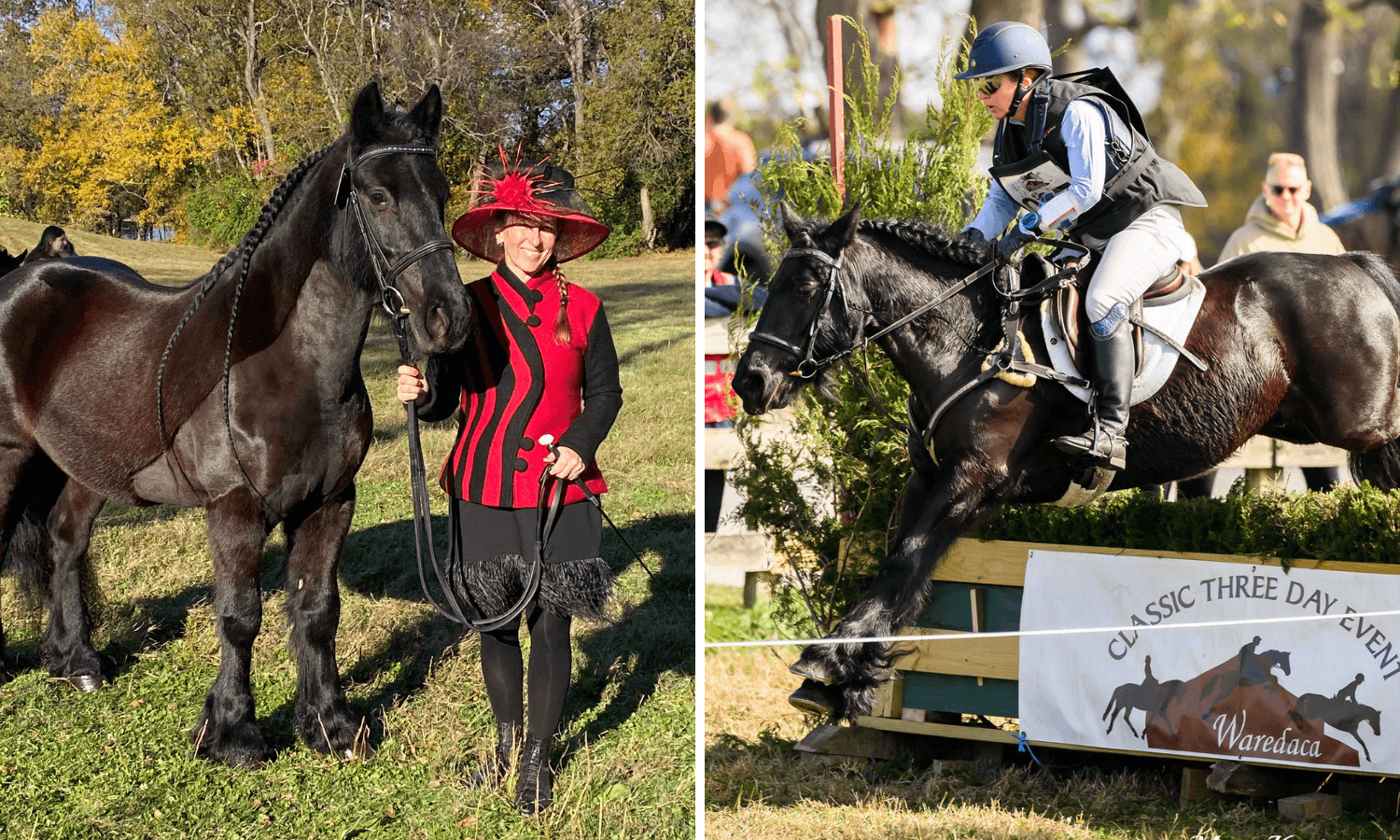Success Starts Here: Jon Holling and Danny Warrington Talk Safety, Move Ups, and More

At the 2021 USEA American Eventing Championships presented by Nutrena Feeds, competitors, trainers, parents, volunteers, and spectators had the opportunity to sit down with professional eventer Jon Holling and former leading steeplechase jockey turned international Advanced three-day eventer and co-founder of LandSafe Equestrian Danny Warrington to discuss all things safety as part of the USEA’s Event College. Here are some of the most hard-hitting questions and the duo’s answers.
On Selecting a Trainer You Can Trust for Yourself or Your Child
Holling: “The first place to start is the USEA Instructors’ Certification Program (ICP). You can search the [USEA] website and see if there are any certified instructors near you. That is not a bad place to start, and there certainly are great instructors out there who are not ICP certified. Good questions to ask yourself about a potential trainer are: are they approachable? As a parent, can you talk to them? There has to be good communication back and forth.”
On Cross-Country Schooling Safely
Holling: “If you are an adult who is riding or if you are a parent who has a kid that is riding, I think it is your responsibility to look and see if the courses and jumps on the property meet basic safety guidelines and are well-maintained.”
Warrington: “I see a lot of people when they go cross-country schooling school one fence and then move on to the next. When we would go cross-country schooling, we would school the bank or the ditch or the water until we felt good about it.
One of the mistakes I see a lot happen is that a horse has some trouble and they work at it and get it done, then they pat the horse and they leave. I feel that a horse needs to do something 100 times until they are confident with it. We may not get to school the bank that day because we spent an hour working on the ditch and left with all of confidence at the world at the ditch. I think people think, ‘I get him over the ditch and then he is done,' and I think that is a big mistake. You want to do that element over and over again until the horses are doing that task quietly and confidently, so the horse and rider are confident. Cross-country schooling is for understanding the questions you will be presented.”
Holling: “I school cross-country like I school a gymnastic. I set up a line, we work the line. We will break it down, build in new things and finish it. I think because, in Florida especially, you pay $50 to go cross-country schooling and people feel like they are paying by the jump. The more jumps they jump, the better deal they get. We have some great schooling facilities that also run events, so people want to jump the entire course they will see at the event.”
On Creating Cross-Country Courses at Home
Holling: “There are two great resources on the [USEA] website: ‘Tips for Designing Your Cross-Country Course’ and ‘Creating a Safe Cross-Country Schooling Course.’ That is a great place to start. There are basic things you have to do as well, such as maintenance of the footing, having safe jumps that aren’t falling apart, things like that.
I think that in any practice you shouldn’t probably be always schooling the height and intensity of what you will be competing because you are trying to teach the horses. At my property, I can get my horses ready for pretty much any event I want to go to at any level and I don’t have any jumps bigger than Preliminary on the property. It is more about where I put them, how I place them, and the technicality.”
On When to Move Up
Warrington: “My rule for my people on when they should move up is when they are bored. When the current level they are at is boring to you. For me, I would say if you are going to move from Novice to Training and there is a bending line out there, if it is a four-stride, let’s make it five. Or if there is a direct line and it is four and if it is safe and walkable, let’s angle that and make it three. That way we can say ‘this Novice is prepping you for the next level.’ Can you go a little bit quicker, can you slow down? Can you show me that you have control out there? Someone may say, ‘well I just went double clear four times, it is time to move up.’ But I ask, did you do it quietly? Did you do it with confidence? Did you do it the way you wanted to do it?”
Holling: “We are all competitive, we don’t do this because we don’t want to win. It is not about how prepared you think you are or how brave you are before you go. It is about how prepared you are and how brave you are in the box. You can convince yourself that you are ready to move up until they say “go.” And then you are out there, if that is when you are questioning it then that is the real problem.
I am a big advocate for if you are ready to move up a level when you get done with cross-country, you should have had no bad distances and no sketchy jumps. It should have been a smooth round. If you watch the Kentucky CCI5* and watch the top 10 rounds, yes those rounds are impressive but they are also smooth. I remember watching Kentucky one year and watching Karen O’Connor on Teddy and it was like watching a hunter round. It was so smooth. That is what you need to be able to put together before you go on to the next step. Mark Phillips once said to me, he never won an event that he didn’t think he was going to win.”
On How Parents Should Be Involved
Holling: “For parents, it is really important that we don’t let a kid pressure us into a decision about moving up and that you have a good quality instructor there to be in charge of that decision. In my program, at the end of the day, it is my decision. They can tell me what they want and that they want to do it, it’s still up to me.”















